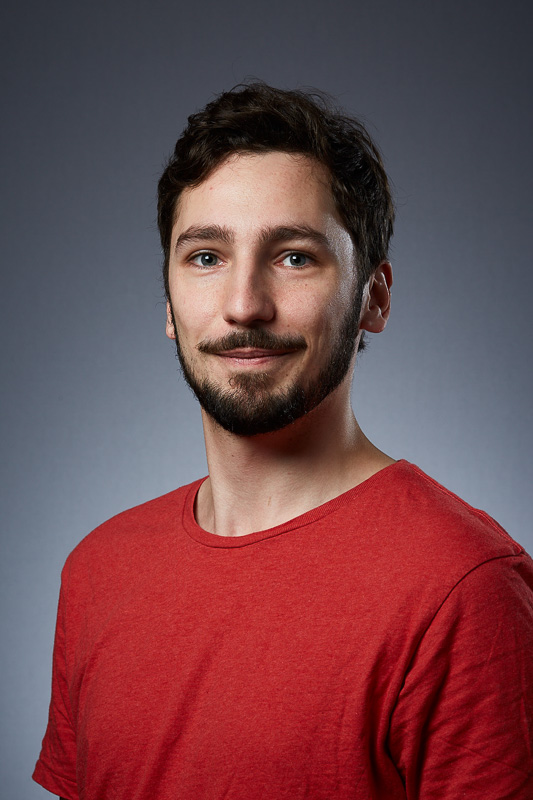Researcher spotlight #38: Arnault-Quentin Vermillet
A short talk with Arnault about his research and interests.

Hi Arnault,
What is your background?
I come from France. I studied cognitive sciences and Anthropology in Lyon, France, before landing in Aarhus for my MA in cognitive semiotics. After that, I had the chance to contribute to the early days of the cognitive science education at AU until I started my Phd at the Interacting Minds Center.
What are your main areas of research, and what do you think makes them interesting and worth studying? Do you have any collaborators?
On an abstract level, It is this co-dependence between structure and flow that determines my scientific interests, from cognitive modelling to history of science. I am most interested in the flexibility, or dynamics, of social structures and how they relate to the way agents within them share information.
Currently, I work on the emergence of parenting roles and the division of labour in new parents. I investigate the implicit and explicit mechanisms that influence how families decide to organise care work around their newborn baby. So broadly speaking, the overarching research question that guides our lab's work may be something like "What impact do psychological effects, cultural norms, or governmental policies have on parents, their behaviour, and the structure of their home?". This manifests in different projects. For example, in some experimental work, we investigated the "path dependence of caring." If your baby cries and you decide to sooth them, are you more likely than your partner to do it again next time? And is this effect mediated by your perception of gender roles?
We are also actively following the effect of the law change on parental leave that took place this August in Denmark. In a survey and experience sampling study, we are tracking the evolution of health and well-being of Danish parents before and after the law change.
I work closely with my supervisors, Christine Parsons and Joshua Skewes, as well as our great research assistant, Mikkel Werling.
How did you hear about Cognition and Behavior Lab?
When I first arrived here as a master student, I had no income. I met a research assistant working at COBE Lab at a party, and they encouraged me to sign up for the fees. It was an easy sell given my background in cog sci', and that got me through my studies without starving. It wasn't long before I became a student assistant there myself.
How have you found using the lab so far?
In general, the infrastructures of COBE Lab are well thought through. The physical space and equipment give a lot of flexibility to researchers. The sign up for participants is easy and the Human Subject Committee does a great job at protecting participants' interests, which means that participants are usually interested and motivated. Once everything is cleared administratively (which is made rather straightforward too), it is relatively fast to set up and collect data.
I've mostly used COBE lab to do on-site interactive tasks. For example, where two or more people have to solve a task together. We're currently trying out more hybrid formats with on-site, online, and at-home components.
Is there a particular recommendation you would like to pass on to other researchers? Something you wish you had known before you started, or just a useful trick.
Talk to the Lab Manager. Ever since I first stepped foot in the lab, they've been my lifeline (Hi Laura!). They know all there is to know to properly set up an experiment in COBE lab, from the admin side to the practical. They have great advice, and they always seem so glad to help.
Could you recommend one academic book to fellow colleagues that you think is of great interest?
The Dawn of Everything by David Graeber and David Wengrow.
It is a very critical account of common narratives of the evolution of human societies, their ideological blindness, and their political motivations. At the same time, the authors outline their own "new history of Humanity", based on archeological and anthropological evidence, and with their own, acknowledged, ideological bias (Graeber is pretty famous for his anarchist views). In offensively short terms (the book is 700 pages): Humans are, and always have been, political beings, hence they've always arranged themselves in arbitrarily complex societies. They like to experiment, tinker and goof around, so these power structures are transient. They may change or collapse depending on time, environment, encountering other societies, or just for fun.
Even if the line between speculation and scientific investigation is not always clear, it was a very intellectually stimulating read. In cognitive science, there is a tendency to aim for simple evolutionary explanations to complex dynamic behaviour. But most often, evolutionary arguments are mere speculation, and at best they are (likely untestable) hypotheses. Yet, they carry some authoritative weight and are easily mistaken for facts.
In my opinion, the main interest of the book for cognitive scientists lies in:
(1) Questioning the history, social context, and political use of evolutionary theories in order to understand why they are so persistent in the scientific landscape, despite adding little to no value to a scientific claim.
(2) Realising that you can have interesting theories and hypothesis on the complex social behaviour of humans without relying on pseudo-evolutionary assumptions.
Away from your research, what do you enjoy doing?
I am a proud (maybe mildly pathological) hoarder. As a student, I dumpster dived and tried to reuse anything I could as much as possible. I kept parts of that racoon mindset with me. I have fun breaking things to see how they work, or finding new uses to seemingly useless stuff. Weekends are usually hack & repair days. Recently, I got into fermentation, pickling, and other monstrous food preservation experiments.